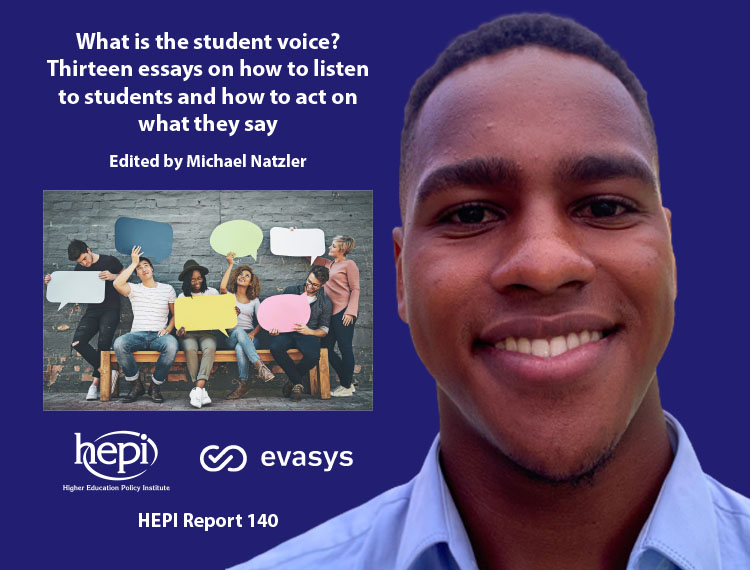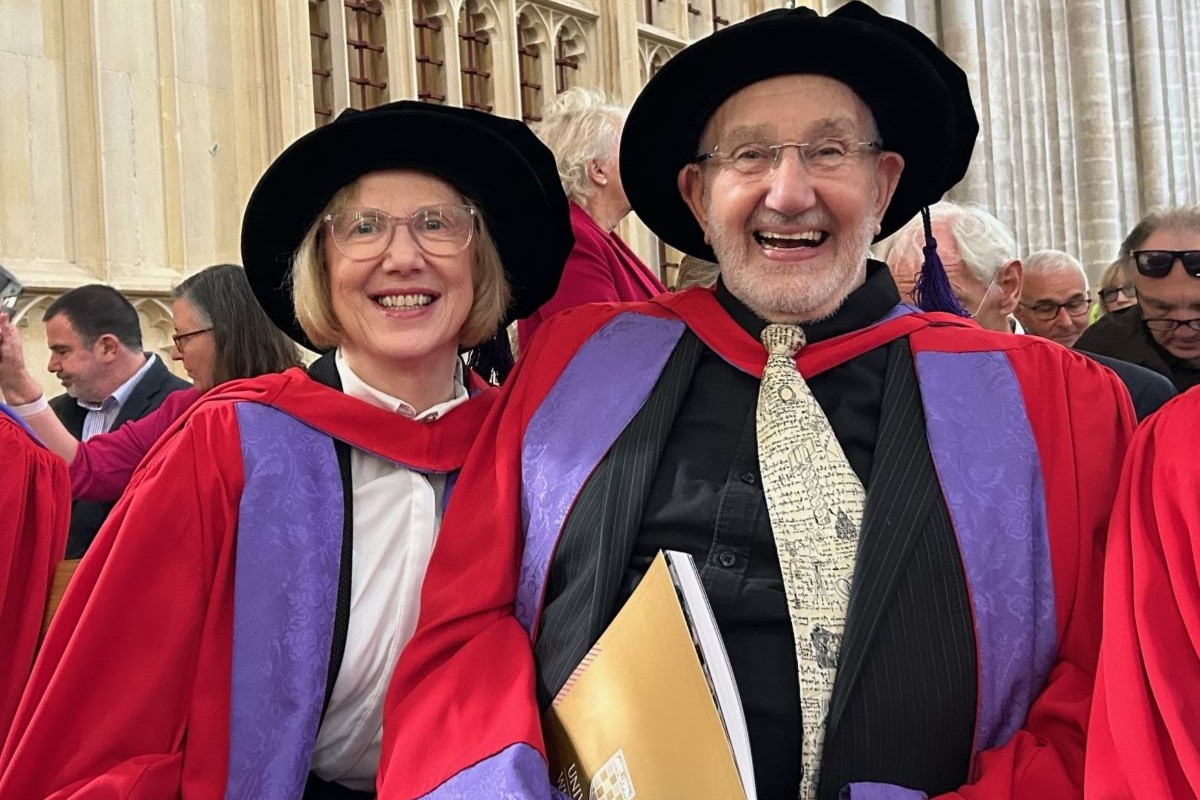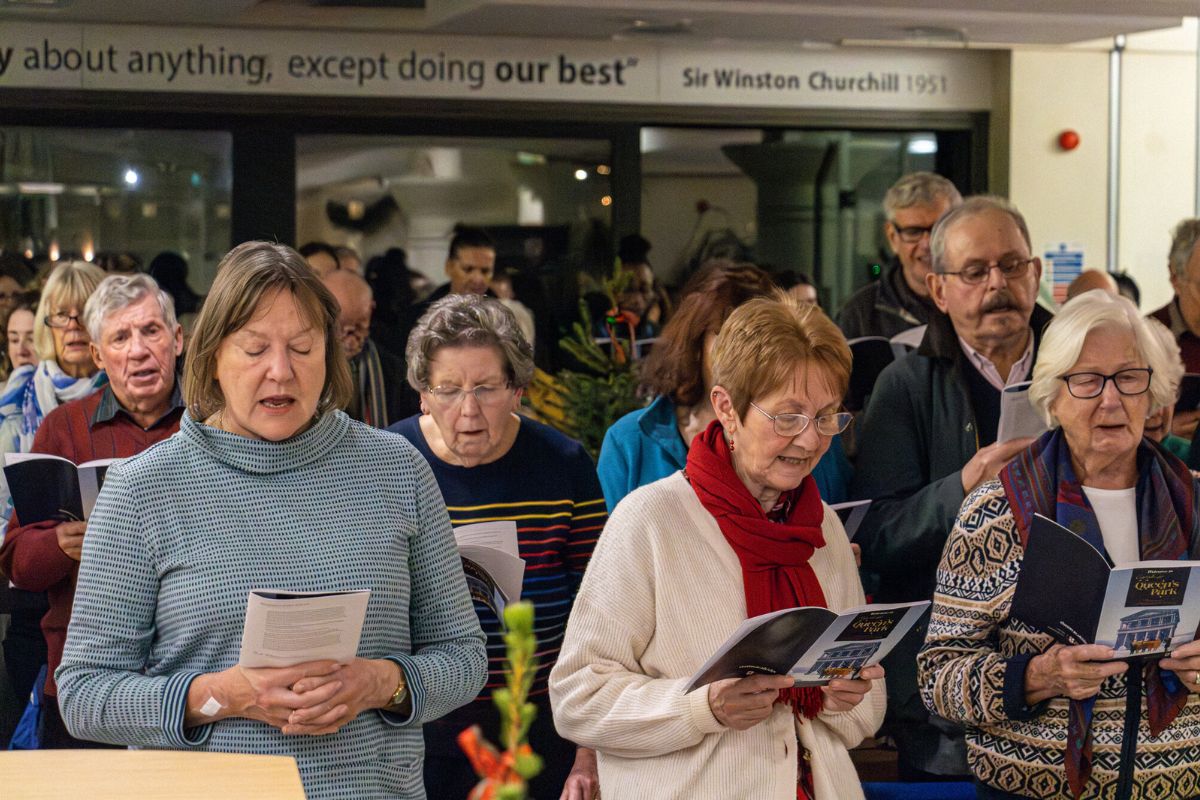International students in the UK – perspectives put in context

The attraction of the UK as a destination for international students seeking a tertiary education has long been on the rise and this is evidenced by the fact that in 2018 these students added an estimated £20 billion to the UK economy.
Not only that, government bodies such as the Department for Business, Energy & Industrial Strategy (BEIS) have – for example – an International Research and Innovation Strategy (2019) that looks to invest £110 million in Artificial Intelligence (AI) Master’s and PhD programmes that researchers and innovators from around the globe can benefit from.
With this growing international student population and the funding that is being utilised to support it, one would be forgiven for thinking that these students have a relatively smooth journey during their time at university but, unfortunately, this is not always the case.
Given my experience over the last year as the International Students’ Officer (ISO) at the University of Bristol Students’ Union (SU), I want to shed light and provide a voice to the topics and concerns which international students care about more generally, but also specifically as a result of the Coronavirus pandemic. Given the infancy of my role in our students’ union, there has been much scope to influence meaningful and lasting change and it is through this lens that I hope to frame my observations.
Employability
A survey titled International & EU Students Research Project (2018) that was run by Bristol Students’ Union shows that of a group of 208 students who were asked their motivations for coming to study in the UK, 66 per cent of these students chose the option ‘to help my career prospects’.
The Careers Service at the University of Bristol is by all accounts a very knowledgeable and approachable facility for students to utilise, offering interview tips, CV / cover letter review sessions, workshops on securing work visas in the UK and even publicising various internships through its ‘myopportunities’ page. To add to this, there is a piece of active policy that mandates Bristol Students’ Union seek to create an ‘SU Job Shop’. Nevertheless, the odds always remain stacked against international students, given the ever-competitive nature of many job postings and the unwillingness of several companies to sponsor a work visa.
As such, the arrival of the ‘Graduate Route Visa’ (as of 1 July 2021) has been a very welcome addition to the arsenal of tools international students can use to find work in the UK. Preliminary records of student opinion already show a real satisfaction with the introduction of the visa, with a UK Council for International Student Affairs (UKCISA) Fest poll showing that of the 42 respondents that were asked ‘How do you plan to work in the UK after graduating?’, a very encouraging figure of 20 said they intend to ‘Via Graduate Route then stay in the UK’.
Yet the effects of COVID have meant the scope of this visa may not be all-encompassing as students need to be in the country by 27 September 2021 to take advantage of this, and many students may not be able to do this due to travel restrictions. As such, mitigations could be put in place to make the positive impact of this scheme more far-reaching. One such mitigation could be removing the requirement for students who received distance learning in the past academic year having to apply for a Student visa before they are eligible for the Graduate Route visa.
Tuition fees
In the 2010/2011 academic year, the University of Bristol had average undergraduate overseas tuition fees of £11,900 for ‘Band 1 (Arts / Classroom-based)’ courses and £14,950 for ‘Band 2 (Science / Lab-based)’ courses.
This contrasts starkly with the fees in the 2021/2022 academic year, where the average Arts / Classroom-based course is £20,100 and for Science / Lab-based courses this figure rises to £24,700.
In March 2020, Bristol Students’ Union ran a full-scale tuition fee campaign with the intended aim of securing partial tuition fee compensation and reduced international tuition fees for future cohorts. Certain impacts of COVID, such as the loss of specific educational experiences (for example lab time, field trips and use of equipment) and the proposed ‘blended learning’ experience not being able to run fully throughout the year, due to national lockdowns in November 2020 and January 2021, were both key factors in the Sabbatical Officer team’s campaign for both home students and international students. However, international students suffered especially, with some not being able to travel to the UK (as a result of COVID restrictions in their home countries) while others travelled to the UK, only to take part in limited physical teaching, with many not having the opportunity at all.
The international element of the campaign primarily involved working with International Students’ Officers at other Russell Group universities, encouraging students to write letters to their embassies, arranging a meeting with our University’s Fee Setting Group and gathering signatures for a government petition.
Even with these extensive efforts and our Sabbatical Officer Team managing to reach consensus with our University Senior Management Team on several of our requests, a painful understanding that was universally reached is that none of our asks could be realistically enacted without support from the Government – as this would only leave the University with a significant financial risk to bear by itself. Consequently, it appears quite clear to me that a serious rethinking of the current model of funding higher education needs to take place – otherwise international students’ fees will continue to rise to deal with universities’ increasing running costs, inevitably resulting in both students and institutions being placed in a precarious position.
Asian hate and Sinophobia
Racism against members of the East and South-East Asian community is by no means a new phenomenon, but it is painfully clear that these instances of discrimination have spiked since the prevalence of COVID-19. Between January and June 2020, 457 cases of race-related crime against people identifying as ‘Oriental’ ethnicity were reported to the Metropolitan Police, with 64 of these cases occurring in February alone. These incidents have happened in a variety of circumstances, even while victims have been doing the most ordinary of activities, as was the case when Dr Peng Wang, a lecturer at the University of Southampton, had racial slurs yelled at him and was physically attacked during a jog in February 2021.
Bristol has been no different, with multiple instances of Asian hate having been reported to the police since the start of the pandemic. Efforts to counter this have come in the form of student efforts – such as the BME Network hosting an event titled ‘Standing Against Sinophobia’, giving students a space to talk about their experiences and how others can be effective allies – as well as through staff efforts, such as a statement of solidarity and support being placed in a staff newsletter. From a students’ union perspective, I ran a survey that was distributed among East and South-East Asian students to gauge if any of them had experienced specific instances of discrimination and the results overwhelmingly confirmed they had. The University Student Inclusion Team has continued to try and put this information to good use, feeding into their ‘Intercultural Awareness Training’, but from a more individual support perspective there is still scope for the results to feed into something such as increasing the number of counselling staff with language skills to help students feel more comfortable when divulging certain information.
Accommodation – guarantor
Rent and accommodation are substantial costs that a university student will need to manage during their studies and this is particularly daunting when you are an international student, as not having a guarantor could result in having to pay a year’s rent all before having even moved into the property. Bristol is notorious for having a bustling but also expensive student property market, with students paying the fifth-highest amount in the country behind King’s, UCL, Brighton and Edinburgh.63
During my term as an International Students’ Officer, I lobbied the University to institute an in-house guarantor scheme, similar to schemes that exist at Edinburgh, UCL, Cardiff, Sheffield, Sussex, LSE, Imperial, Glasgow and Durham.
Though the University of Bristol currently has a commercial agreement with Housing Hand, where students pay £250 to have the company be a guarantor for them, this is still a weighty amount of money that not every student has readily available. Additionally, most university-run schemes only require students to pay £50, a much more manageable amount. Though there are financial and reputational risks the University may need to bear during this process, it is crystal clear that from a student perspective this would feel like a genuine gesture of kindness and support.
COVID specific matters
As COVID has continued to have an increasing foothold in students’ lives, it has greatly impacted specifically the experiences that international students have had during their time at university. At the end of November 2020, it became known that this group of students would need Polymerase Chain Reaction (PCR) tests to travel for the Christmas holidays and not the less reliable lateral flow antigen tests. By this point, LSE was already intending to offer free in-house PCR tests to its international students given the average cost of £200 at the time. Subsequently, I advocated for an equivalent provision to be implemented in Bristol. Through my lobbying, £150 was allocated per person for students to fly home and the same amount was made available to students looking to come back to the University after the holidays.
When the two-test quarantine package became mandatory for those returning to the UK, my prior work with the University on a related issue meant that it was a lot easier to advocate for an additional £210 per student. The introduction of the Red, Amber, Green system created another set of challenges as students from red-list countries needed to attend quarantine in government-sanctioned hotels and this would cost a staggering £1,750 for the 10-days required.64 Given the immense financial pressure that the University was under in the 2020/21 academic year, this cost could not be covered. However, through continued discussions with the University, a concession was reached and this cost will be covered for the next academic year.
During the 2020/21 academic year, the efforts of the University of Bristol were sector-leading in many instances and what they are now offering is not only what students have been asking for, but also exactly what they need during this tumultuous time. Nevertheless, an area that the institution and the sector could still improve on is hardship funding for international students. In Bristol, a specific ‘Coronavirus impact fund’ was created so that hardship funds offered by the Government could be distributed to all students – and with great success.
Yet the ‘International hardship fund’, a fund specifically created to support international students, remains dangerously underfunded and, in a year where COVID did not exist, this would place a large group of students in a situation where they are under a significant financial burden with no real avenue for redress. With the University currently having well-funded undergraduate and postgraduate ‘financial assistance funds’ dedicated to providing aid for struggling home students, it would be prudent to provide their international counterparts with the same resources to ensure international students are not left by the wayside.
Roy Kiruri, Former International Students’ Officer at the University of Bristol Students’ Union
What is the student voice? |
|
Produced by the Higher Education Policy Institute and with support from EvaSys, What is the student voice? Thirteen essays on how to listen to students and how to act on what they say (HEPI Report 140) edited by Michael Natzler, is a new collection of essays which provides a range of views on what and where the student voice resides and how to listen and respond to it. The collection covers a wide range of topics from the role of sabbatical officers as governors to the National Union of Students, mature students and includes contributions from survey experts, sabbatical officers and a vice-chancellor as well as interviews with the Office for Students’ Student Panel. Including a chapter by Nick Hillman, HEPI Director, the chapters are:
|











Responses